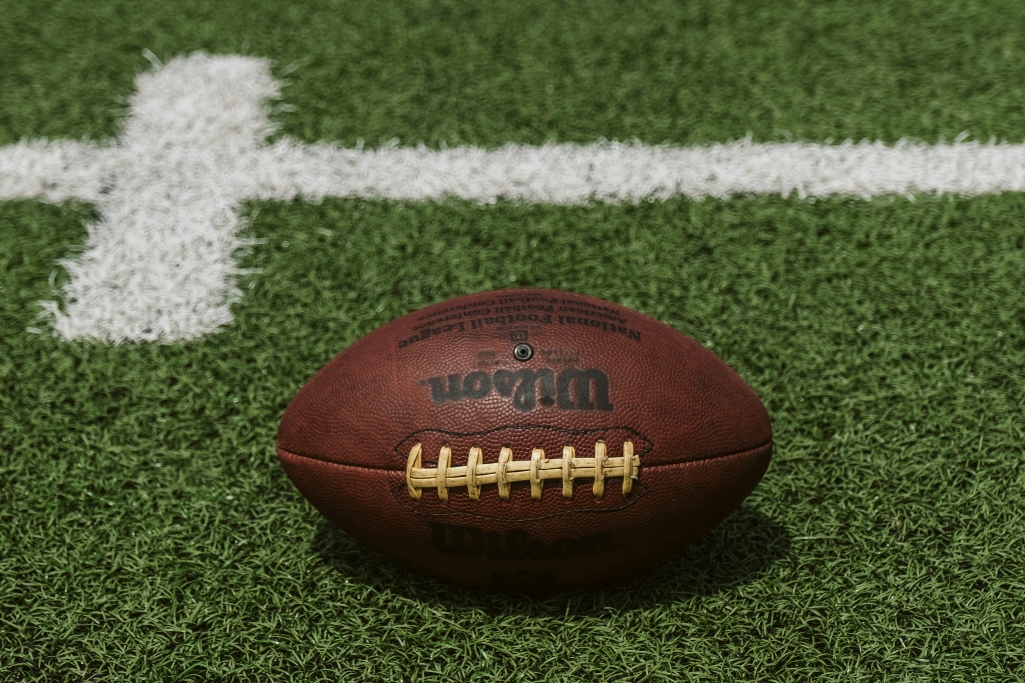
BRENTWOOD, Tenn. — Judging by the television audience, Americans certainly care about the Super Bowl. Few, however, think God shares their concern.
The 2024 Super Bowl drew more than 123.7 million U.S. viewers, the largest television broadcast viewership in the nation’s history. Yet, most U.S. adults don’t believe God cares who wins the Super Bowl or determines the game’s winner, according to a study from Lifeway Research.
“While a large number of Americans believe God exists, far fewer think He is a fan of either team in the Super Bowl,” said Scott McConnell, executive director of Lifeway Research. “While these are interesting questions for win-loving humans to ponder, God describes His own ways as higher than our ways — not unlike a blimp being higher than the players on the ground (Isaiah 55:8-9).”
Heavenly concern
Around 1 in 8 Americans (13%) believe God cares who wins the Super Bowl. Almost 7 in 10 (68%) disagree, with 61% strongly disagreeing. Another 16% aren’t sure, and 4% say God doesn’t exist. Similarly, in a 2015 Lifeway Research phone survey, 8% said God cares about the winner of the game.
Some groups are more likely to say God is concerned about the big game. Men are more likely than women (16% v. 10%). African Americans (22%) and Hispanics (19%) are more likely than white Americans (9%).
Those younger than 50 are more likely to see God’s concern in the game than older Americans. Those aged 18-34 (21%) and 35-49 (16%) are more likely than those 50-64 (7%) and 65 and older (3%) to say God cares who wins the game.
Those with evangelical beliefs are more likely than those without such beliefs to say God cares about the Super Bowl (19% v. 11%). Catholics are the most likely to disagree (80%).
Among Christians, those who attend church, even occasionally, are more likely to believe God cares who wins the game. Those who attend a worship service more than once a week (24%), about once a week (15%) and once or twice a month or only on religious holidays (18%) are more likely than those who rarely or never attend (6%) to believe God is concerned about the outcome.
“Most Americans aren’t willing to agree that an infinite God can be reduced to a finite question stating His care for the Super Bowl winner,” McConnell said. “But churchgoers who are regularly reminded of God’s care are a little more likely to say He cares about the big game.”

Divine intervention
Compared to those who say God cares about the Super Bowl, slightly more Americans believe God plays a role in determining the game’s outcome. Around 1 in 5 (19%) believe God determines the winners and losers in the Super Bowl. Most (65%) disagree, 12% aren’t sure, and 4% don’t believe He exists.
Many demographic groups who say God determines the outcome also believe He cares about the Super Bowl. Men are more likely than women to see divine intervention in the outcome (23% v. 16%). Young adults, those 18-34, are the most likely to agree (35%). African Americans (33%) are also among the most likely to see God’s hand in who wins and loses.
Americans with evangelical beliefs are more likely than those without such beliefs to agree God determines who wins the Super Bowl (28% v. 17%). Catholics (71%) and Protestants (67%) are more likely than the religiously unaffiliated (56%) to say they disagree.
Christians who attend a worship service more than once a week (35%), about once a week (28%) and once or twice a month or only on religious holidays (26%) are more likely to agree than Christians who rarely or never attend a worship service (9%).
“Many theologians would point to the fact that God does not look at outward appearances, which may include a win or a trophy, but instead cares about our hearts,” (1 Samuel 16:7) McConnell said. “But many Christian players thank God after a win, showing belief He had something to do with it.”
Those regularly attending church may have a decision to make regarding the Super Bowl. A 2016 Lifeway Research study of pastors found just 5% plan to cancel their normal Sunday evening events for the Super Bowl, but a few plan to adjust to include watching the game (24%) or adjust in other ways (12%). Most (59%) said they would continue as normal.
Among churchgoers, however, a 2022 Lifeway Research study found 42% say they would skip church at least once a year to watch a favorite team or sporting event.
For more information, view the complete report and visit LifewayResearch.com.
Methodology
The online survey of 1,200 Americans was conducted Aug. 14-30, 2024, using a national pre-recruited panel. Quotas and slight weights were used to balance gender, age, region, ethnicity, education, religion and evangelical beliefs to more accurately reflect the population. The sample includes an over-sample of Americans with evangelical beliefs, providing additional reliability for breakouts of this group. Totals for all Americans reduce these responses to their correct proportion through weighting. The completed sample is 1,200 surveys. The sample provides 95% confidence that the sampling error from the panel does not exceed plus or minus 3.3%. This margin of error accounts for the effect of weighting. Margins of error are higher in sub-groups.
Christians are those with a religious preference of Catholic, Protestant, non-denominational Christian or Orthodox. Evangelical beliefs are defined using the National Association of Evangelicals Lifeway Research Evangelical Beliefs Research Definition based on respondent beliefs. Respondents are asked their level of agreement with four statements using a four-point, forced-choice scale (strongly agree, somewhat agree, somewhat disagree, strongly disagree). Those who strongly agree with all four statements are categorized as having evangelical beliefs:
- The Bible is the highest authority for what I believe.
- It is very important for me personally to encourage non-Christians to trust Jesus Christ as their Savior.
- Jesus Christ’s death on the cross is the only sacrifice that could remove the penalty of my sin.
- Only those who trust in Jesus Christ alone as their Savior receive God’s free gift of eternal salvation.


